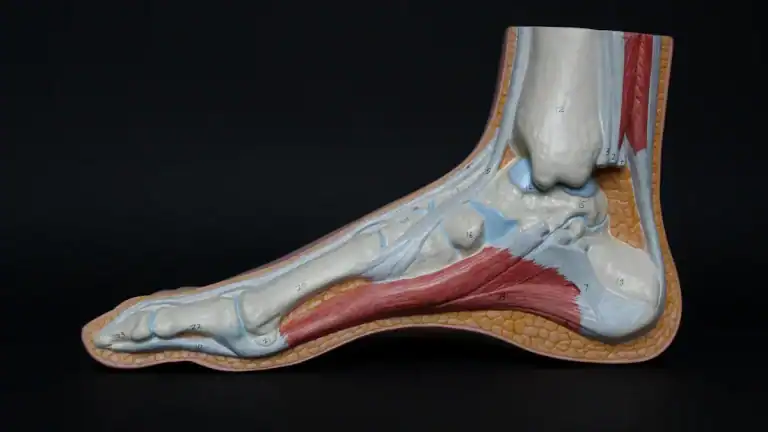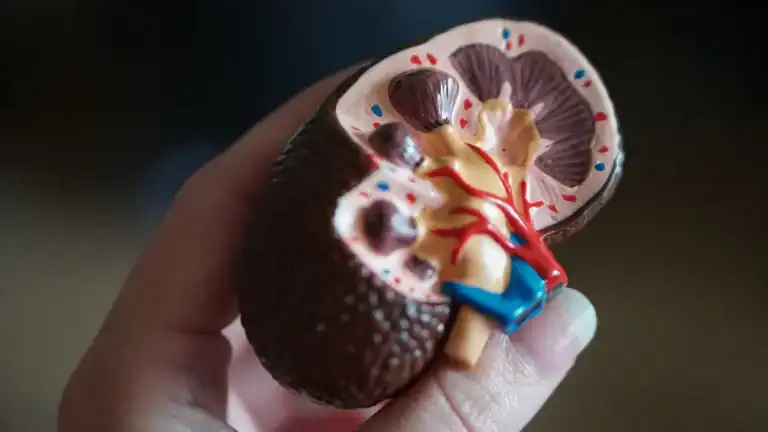Eczema can sometimes lead to bruise-like marks on the skin, leaving many curious if the condition itself causes discoloration. The constant itching and scratching weaken the skin’s protective layer, making tiny blood vessels more prone to damage. Over time, inflamed areas might develop dark patches resembling bruises, especially in those with sensitive or fragile skin. Certain medications, like topical steroids, can thin the skin further, increasing bruising hazards. But why does this happen—and could it be prevented?
Link Between Eczema and Bruising
Many people with eczema notice unexplained bruising and contemplate whether their skin condition is the cause. Eczema, an inflammatory skin disorder, weakens the skin’s protective barrier, making it more fragile and prone to irritation.
While eczema itself doesn’t directly cause bruising, the constant scratching and rubbing from intense itching can damage tiny blood vessels beneath the skin, leading to discoloration that resembles bruises. The inflamed, sensitive skin also becomes more susceptible to minor injuries, which may manifest as faint marks.
Additionally, some eczema treatments, like topical steroids, can thin the skin over time, increasing the risk of bruising. Though alarming, these marks often fade as the skin heals. Comprehending this connection helps individuals manage their symptoms better and seek appropriate care when required.
Symptoms That Make Eczema Look Like Bruised Skin
Because eczema can make skin appear discolored and tender, it’s easy to mistake its symptoms for bruising. Inflamed skin from eczema often appears red, purple, or grayish, mimicking the appearance of bruises. Scratching can worsen discoloration, leaving behind dark patches or broken blood vessels that resemble bruising. Severe itching may also lead to open, bloody spots, further blurring the line between eczema and injury-related marks.
| Eczema Symptom | Similarity to Bruising |
|---|---|
| Dark purple or gray patches | Looks like healing bruise coloration |
| Broken blood vessels | Resembles deep bruising |
| Scratched, inflamed skin | Appears tender and discolored |
| Bloody spots from itching | Seems like recent injury marks |
Understanding these signs helps distinguish eczema from actual bruising and guarantees proper care.
How Eczema Appears on Different Skin Types
Why does eczema look so different from one person to another? Atopic dermatitis, the most common form of eczema, manifests uniquely across various skin tones and types. On lighter skin, inflamed patches often appear red or pink, while on darker skin, they may look brown, purple, or grey. These variations can make diagnosing skin conditions like eczema more challenging.
In areas with hair growth, eczema might present as raised, rough patches, especially noticeable on darker pigmentation. Round, discolored patches are also more common in deeper skin tones. Constant itching and inflammation can lead to open, bloody lesions, further altering eczema’s appearance. Comprehending these differences helps individuals recognize symptoms promptly and seek proper care, ensuring better management of this unpredictable condition.
Causes of Thin Skin in Eczema Patients
Eczema doesn’t just alter the skin’s appearance; over time, it can also affect its strength. The skin barrier weakens, making it more prone to damage, while inflammation can strain blood vessels, leading to fragility. Common causes of thin skin in eczema patients include prolonged steroid use, nutritional gaps, and natural aging.
| Cause | Effect on Skin |
|---|---|
| Steroid treatments | Thins outer layers, weakens collagen |
| Poor circulation | Reduces nutrient delivery to skin cells |
| Vitamin deficiencies | Slows skin repair, weakens blood vessels |
Steroids, often prescribed for flare-ups, can degrade collagen over time. Poor circulation limits oxygen and nutrients, while low vitamin C or K levels hinder healing. Aging further thins the skin, worsening eczema’s impact. The combination leaves skin delicate, increasing bruising risks.
The Role of Inflammation in Eczema-Related Bruising
Inflammation plays a key role in eczema-related bruising through weakening skin and blood vessels.
The immune system’s response to eczema releases chemicals that make blood vessels leakier, leading to discoloration.
Chronic scratching can also break small blood vessels, creating bruise-like marks.
Inflammation and Skin Damage
Several factors contribute to eczema-related bruising, with inflammation playing a major role. Inflamed skin becomes red, irritated, and sensitive, often appearing discolored—ranging from purple to gray in darker skin tones.
Severe cases of eczema can lead to skin thinning, making it more prone to damage from scratching. The constant itching and rubbing weaken the skin’s barrier, causing broken blood vessels and open sores that resemble bruises.
Over time, repeated irritation deepens discoloration, mimicking the look of bruising even without injury. While eczema itself doesn’t cause traditional bruises, the combination of inflammation and skin trauma creates similar markings.
Comprehension of this helps differentiate between actual bruising and eczema-related skin changes, easing concerns about unexplained marks. Proper care reduces further damage.
Immune Response Effects
The body’s defense system sometimes overreacts in eczema, turning what should be a protective response into a source of skin damage. The immune system triggers inflammation, which can weaken blood vessels, making them leak and appear bruised.
In severe types of eczema, this reaction becomes more intense, damaging capillaries beneath the skin and causing purplish discoloration. Chronic inflammation thins the skin over time, increasing bruising risks even from minor irritation or scratching.
While not all eczema leads to bruising, frequent flares or aggressive scratching worsen the problem. Comprehension of this link helps explain why some with eczema notice unexplained marks, emphasizing the need for gentle skin care.
Impact of Scratching on Skin Fragility and Bruising
Scratching an itchy eczema patch might feel like the only relief in the moment, but it comes with a cost. The urge to scratch can weaken already fragile skin, making it more prone to bruising. Keeping nails short helps reduce damage, but even gentle scratching can break tiny blood vessels beneath the skin, leading to discoloration.
Inflamed eczema patches often appear red or, on darker skin tones, brown or purple, resembling bruises. Persistent scratching can also create open sores, worsening the bruised look. The skin’s natural barrier weakens with eczema, making it easier for minor irritation to cause lasting marks.
Over time, repeated scratching thins the skin, increasing sensitivity and the likelihood of bruising even from light contact.
Medications That May Contribute to Bruising in Eczema
Medications meant to soothe eczema can sometimes leave the skin more vulnerable to bruising. Steroid creams and ointments, commonly prescribed to reduce inflammation, can thin the skin over time, especially with prolonged use.
Topical steroids weaken the skin’s outer layer, making it more prone to damage from minor bumps or scratches. Systemic corticosteroids, taken orally or through injection, might also thin the skin and impact blood vessel integrity.
Some supplements, like ginkgo biloba, can further escalate bruising risk by thinning the blood. While these medications help manage eczema symptoms, their side effects necessitate careful monitoring. Individuals noticing frequent bruising should discuss alternatives or adjustments with their healthcare provider to balance treatment benefits with skin safety.
Nutritional Deficiencies That Worsen Skin Health
Several key nutrients play an indispensable role in keeping skin strong and resilient, and not getting enough of them can make eczema-related bruising worse. Vitamin D helps maintain skin barrier function, and low levels can lead to thinner, more fragile skin prone to damage.
Zinc supports healing and reduces inflammation, but a deficiency may slow skin repair, making bruising last longer. Without enough vitamin C, collagen weakens, leaving skin less able to withstand minor injuries. A lack of vitamin K can impair blood clotting, causing bruises to form more easily.
Probiotics and prebiotics help balance gut health, which influences skin inflammation. Targeting these gaps—especially focusing on vitamin D and zinc—can lessen bruising and support healthier skin in eczema sufferers.
Improving Circulation to Support Skin Recovery
Healthy circulation plays a big role in helping skin recover from eczema flare-ups and bruising. Poor blood flow can slow healing and worsen inflammation, making supplements and lifestyle changes key for supporting skin health.
- Exercise Regularly: Short, brisk walks boost circulation, delivering oxygen and nutrients to damaged skin.
- Use Supplements: Omega-3s and vitamin C improve blood vessel function, aiding skin repair.
- Elevate Legs: Reducing swelling helps circulation, especially when eczema affects the lower limbs.
- Address Deficiencies: Low zinc or vitamin D weakens skin barriers, making bruising more likely.
Improving circulation reduces inflammation and speeds recovery, easing eczema-related skin damage.
When to Seek Medical Advice for Eczema-Related Bruising
If eczema-related bruising appears severe, spreading widely or looking unusually dark, it could signal deeper skin damage requiring medical attention.
Signs of infection—such as warmth, pus, or increasing pain—should prompt an immediate visit to a doctor.
Persistent bruising without obvious trauma or bruising that intensifies despite treatment also warrants professional evaluation.
Severe Bruising Appearance
Whenever eczema flares become intense, the skin can sometimes take on a bruised appearance—but how does this occur? Severe scratching, bruising, and tearing often result from relentless itching, damaging fragile skin. The inflammation and broken blood vessels beneath the surface create discoloration, mimicking bruises. On darker skin, these marks might appear purple or brown rather than red.
- Persistent Itching: Constant scratching weakens skin barriers, leading to bruise-like patches.
- Inflammation: Swollen, irritated skin can darken, resembling trauma.
- Skin Tears: Deep scratching breaks capillaries, causing blood to pool under the skin.
- Discoloration Variations: Eczema lesions on melanin-rich skin often show as gray or brown instead of traditional redness.
If bruising spreads or worsens, consulting a doctor can ensure proper care and rule out other conditions. Gentle skincare and avoiding scratching help prevent further damage.
Infection Signs Present
Eczema-related bruising that looks concerning could signal more than just skin damage—it may indicate an infection requiring immediate attention. If the eczema look includes redness, swelling, warmth, or pus oozing from the bruised skin, it’s time to see a doctor. Fever, chills, or red streaks spreading from the bruise are urgent signs needing urgent care. Persistent or worsening bruising, even with gentle care, also warrants a professional evaluation.
| Warning Sign | Possible Issue | Action Needed |
|---|---|---|
| Red, swollen skin | Infection brewing | Schedule a doctor visit |
| Fever or chills | Serious infection | Seek emergency care |
| No improvement | Underlying condition | Get medical advice soon |
Excessive scratching raises infection risks, so timely treatment helps prevent complications.
Conclusion
In the silent struggle of sensitive skin, eczema’s echo lingers, leaving behind a bruised, battered barrier. Healing happens as hands hold back from harsh scratching, while minds master mindful moisturizing. Though tender tissues take time, treatment transforms trembling skin to triumphant resilience. With patience and care, even the most marred membranes mend, progressing past the painful purple patches toward peaceful, protected perfection. Bruise-like blemishes bow to better habits and boundless self-compassion in this skin-saving expedition.




